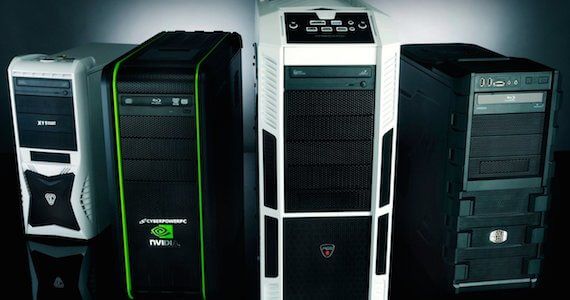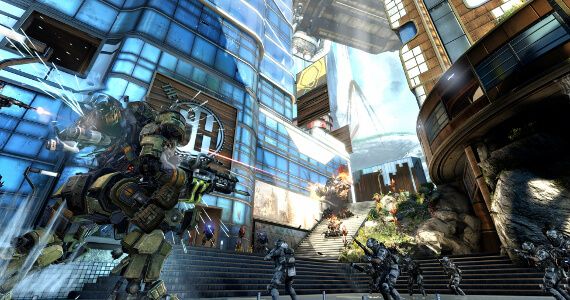At the ground level, console gaming fans are fighting over themselves about the PS4 and the Xbox One, buoyed by frame-rate comparisons and predictions from analysts about the consoles' sales levels, but in the larger scheme of things, platform makers are trying to hold their own against the far mightier beast of PC.
Stocked with a more accessible backend, PC gaming allows for a plethora of titles with the many varying genres allowing niche titles like Gone Home, Papers, Please and Goat Simulator to be regarded in equal contention as big budget blockbusters like Titanfall and Call of Duty. Not only this but PC gaming has also paved the way for the divisive genre du jour, free to play, as well as cheaper downloadable titles that make the platform all the more affordable for customers willing to ditch big screen TVs and boxed copies of games in favour of 19” displays and digital downloads.
What it means for developers is that they will now have to consider whether or not they should chase the console cash cow or try and tame the more lucrative PC landscape, but for the gaming industry as a whole it could mean that the console side of things gets ripped to shreds in PC gaming’s wake, as explained by Doom designer John Romero in a new interview.
Games Industry International was the publication to propose the thorny question of free-to-play to him, with Romero suggesting that “PC is decimating console, just through price.” According to the developer, this is predominantly down to the fact that “with PC you have free-to-play and Steam games for five bucks” which is a fair comment given that free to play has now been embraced on next-gen consoles and the regular Steam sales are still more lauded than any other themed discount that Xbox Live and PSN throws at us.
But how can free to play continue to emerge on consoles and PC alike if developers and publishers grossly overestimate gamers’ willingness to shell out — leading to titles like Dungeon Keeper and the less divisive (but still controversial all the same) practises of games like PS4’s Blacklight: Retribution which force mountains of monetisation on top of a game with unstable foundations?
"Everybody is getting better at free-to-play design, the freemium design, and it's going to lose its stigma at some point. People will settle into [the mindset] that there is a really fair way of doing it, and the other way is the dirty way. Hopefully that other way is easily noticeable by people and the quality design of freemium rises and becomes a standard. That's what everybody is working hard on. People are spending a lot of time trying to design this the right way. They want people to want to give them money, not have to. If you have to give money, you're doing it wrong... For game designers, that's the holy grail,"
Holding on and hoping for the best when it comes to free to play could be a worthy defeat to concede but PC still pips the PS4 and Xbox One to the post regardless in terms of power, Romero explains
"The problem with console is that it takes a long time for a full cycle. With PCs, it's a continually evolving platform, and one that supports backward compatibility, and you can use a controller if you want; if I want to play a game that's [made] in DOS from the '80s I can, it's not a problem. You can't do that on a console. Consoles aren't good at playing everything. With PCs if you want a faster system you can just plug in some new video cards, put faster memory in it, and you'll always have the best machine that blows away PS4 or Xbox One,"
Again, Romero highlights a valid point which echoes that of the Crytek CEO who previously said that the RAM and graphics offerings of the PS4 and the Xbox One (despite being 16 times more capable than the PS3 and the Xbox 360) would see the consoles lose out to the constantly evolving status of desktop PCs and laptops.
Nonetheless, Romero thinks that both PC and consoles will lose out when it comes to VR. He “[doesn’t] see a real good future for the way VR is right now” and says that the technology is “kind of a step back, it's a fad”. Furthermore, he also describes the VR experience as offering a “weird disconnect” which is something that has undoubtedly been a concern for VR sceptics and fans alike.
But will Romero’s predictions come to fruition? With Microsoft’s ‘big plans’ for PC thus far failing to come to a head and PC game developers beginning to migrate and bring their most popular titles to consoles, it seems that the harsh future hinted at by the man with three decades in the games industry could really go either way.
___
Source: Games Industry International



